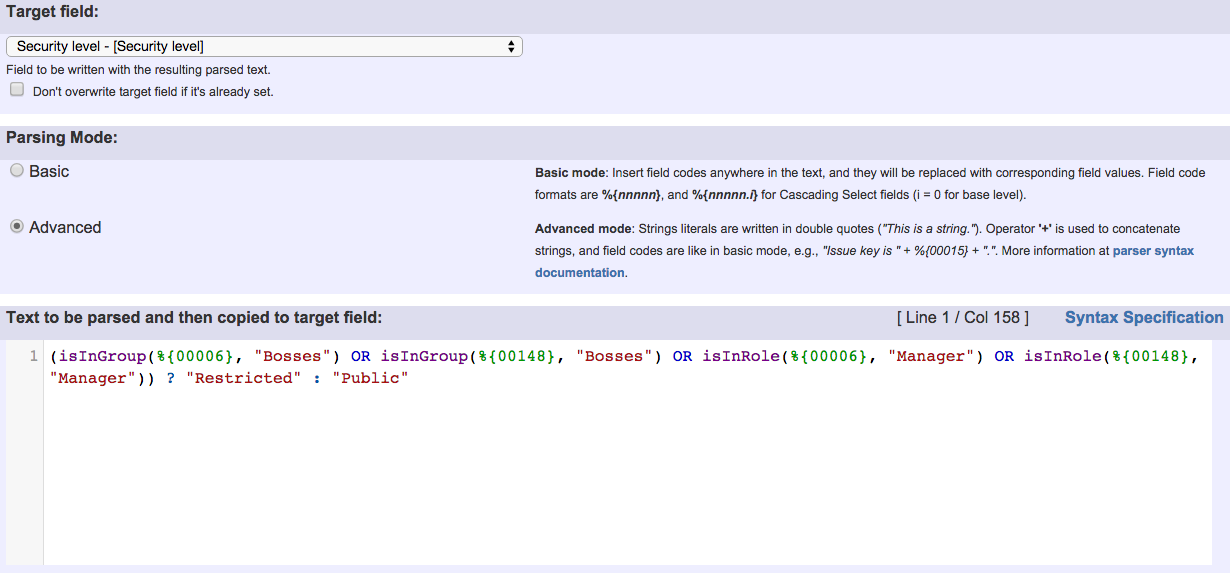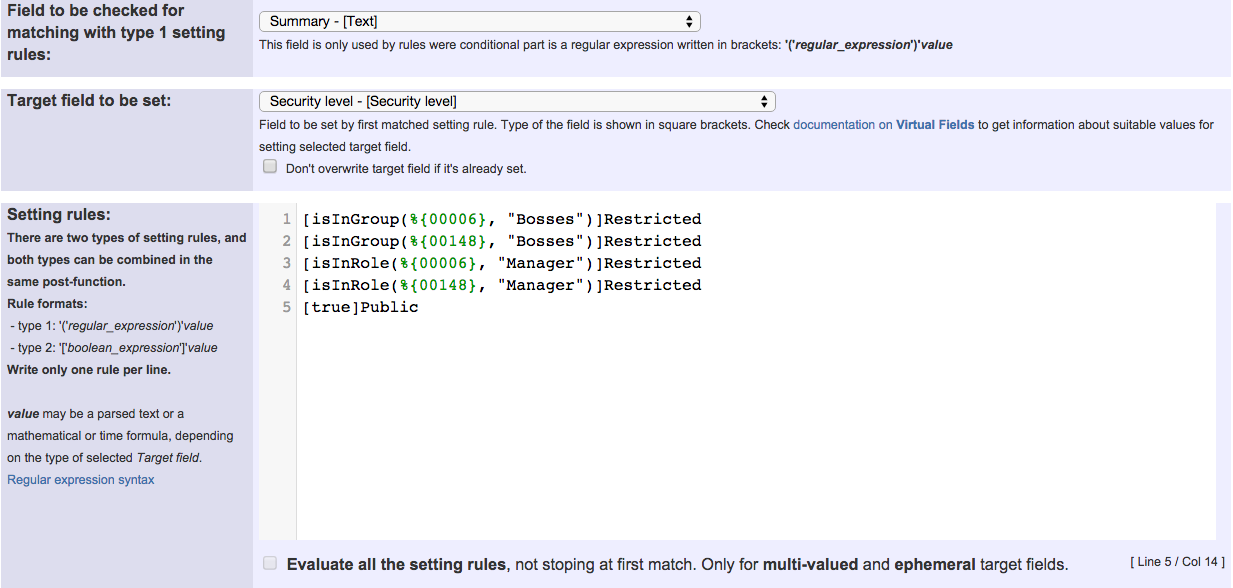Page History
| Section | ||||||||||||||||||||||||||
|---|---|---|---|---|---|---|---|---|---|---|---|---|---|---|---|---|---|---|---|---|---|---|---|---|---|---|
|
|
Features used to implement the example
Example: Set security level based on groups and project roles the reporter or creator are in
Is there a way to set the Issue of ticket when created based on a group the User is in? We want the default security to be open when an issue is created, but if a certain set of users create a ticket we want the security to be restricted.
Yes, you can set Security Level of an issue based on almost any circumstance you may imagine, and of course you can do it based on the groups or project roles one or more users are in.
I explain you how to do it both ways. Let's suppose we want to set issue security level to "Restricted" if reporter or creator are in project role "Manager" or group "Bosses", otherwise security level will be set to "Public". I'm supposing that "Restricted" and "Public" are security levels in the Security Level Scheme of my project:
Using Copy parsed text to a field
Text to be parsed in this example is:
(isInGroup(%{00006}, "Bosses") OR isInGroup(%{00148}, "Bosses") OR isInRole(%{00006}, "Manager") OR isInRole(%{00148}, "Manager")) ? "Restricted" : "Public"
Note that:
- %{00006} is field code for "Reporter"
- %{00148} is field code for "Creator"
Alternative Implementation
Using Set a field as a function of other fields
Setting rules used in this example are:
[isInGroup(%{00006}, "Bosses")]Restricted[isInGroup(%{00148}, "Bosses")]Restricted[isInRole(%{00006}, "Manager")]Restricted[isInRole(%{00148}, "Manager")]Restricted[true]Public The difference between "Reporter" and "Creator" is that the creator is de user who actually created the issue, and because of that can't be edited, while the reporter is the user who informed about the issue, and can be edited if your have the necessary permissions to do it.
Other examples of that functions
| Incoming Links | ||||
|---|---|---|---|---|
| ||||
Set a field as a function of other fields
| Incoming Links | ||||
|---|---|---|---|---|
| ||||
Related Usage Examples
| Content by Label | ||||
|---|---|---|---|---|
|

